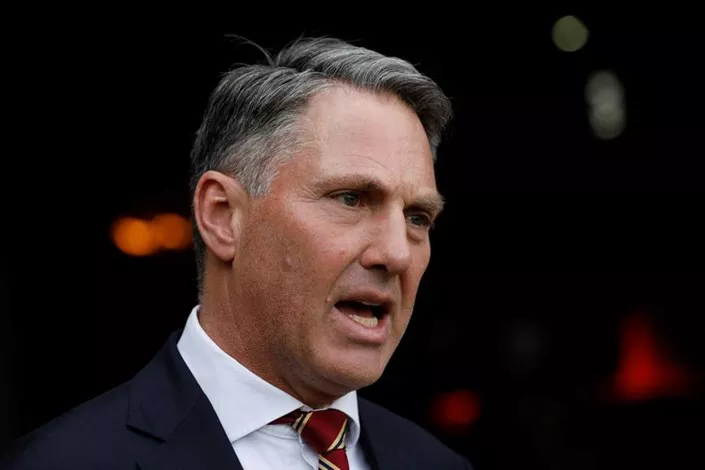Australia has firmly rejected a Chinese proposal to form a united front against rising U.S. tariffs, instead emphasizing its commitment to reducing economic dependence on China and broadening global trade partnerships.
Speaking to Sky News on Thursday, Deputy Prime Minister Richard Marles dismissed the idea of aligning with China on trade issues, saying, “We are not going to be holding hands with China in respect of any contest that is going on in the world.”
His comments came in response to an opinion piece by China’s ambassador to Australia, Xiao Qian, published in The Age, where the envoy urged Canberra to “join hands” with Beijing and other global partners to defend the multilateral trading system.
“Under the new circumstances, China stands ready to join hands with Australia and the international community to jointly respond to the changes of the world,” Ambassador Xiao wrote.
But Marles made it clear that Australia intends to act in its own national interest, noting the government is focused on building resilience by expanding trade relationships beyond China. “We are pursuing Australia’s national interests and diversifying our trade around the world,” he said, pointing to plans to deepen ties with the European Union, Indonesia, India, the United Kingdom, and Middle Eastern countries.
This comes amid escalating trade tensions following U.S. President Donald Trump’s decision to raise tariffs on Chinese goods from 104% to 125%, even as he announced a temporary pause on elevated tariffs for dozens of other countries. Although Australia avoided the steepest penalties, it was still hit with a 10% tariff—a move Prime Minister Anthony Albanese described as having “no basis in logic.”
Despite the economic hit, Albanese has made clear that Australia will not retaliate against the U.S., a long-standing security ally in the Indo-Pacific. “We’re not interested in a trade war with our partners,” he stated earlier this week.
Still, the implications of the U.S.-China tariff conflict could ripple through Australia’s economy. China remains Australia’s largest trading partner, accounting for nearly one-third of its exports. In contrast, the U.S. makes up less than 5% of Australia’s goods exports. Analysts warn that the trade turbulence could have a chilling effect on business investment and consumer confidence.
Australia’s central bank echoed those concerns, noting that ongoing tariff uncertainty may weigh heavily on corporate decision-making and household spending.
As geopolitical tensions rise and economic alignments shift, Australia appears set on charting a more independent and diversified trade path—one that reduces reliance on China without jeopardizing crucial ties to its Western allies.
Related Topics:


